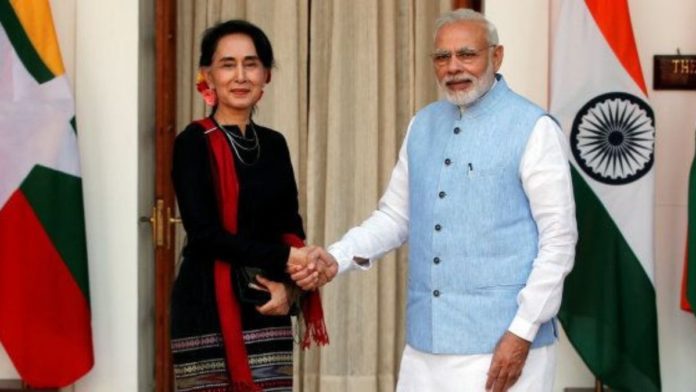India on Monday offered to build an ambitious $6-billion petroleum refinery project near Yangon, to firmly demonstrate its credentials as a deep and viable development partner of Myanmar.
As China further boosts its energy cooperation with Myanmar, India is working to build its existence in the same sector in the strategically located neighbour with a booming energy industry. The joint visit by foreign secretary Harsh Shringla and army chief MM Naravane saw the two countries discussing the possibility of establishing a petroleum refinery in Myanmar that will include an investment of $ 6 billion.
India seeks to assure that the neighbouring country does not get firmly set in China’s orbit. “This project would be a win-win arrangement for both countries. As of now, Indian Oil Corp. (IOC) has evinced interest in the project,” said a person aware of the matter, on the condition of anonymity.
Other highlights of the visit comprise presenting 3,000 vials of Remdesivir, considered as a feasible option to treat COVID-19 patients, to state counsellor Aung San Suu Kyi in a “symbolic move of India’s commitment to assist Myanmar in its fight against the pandemic”, he said.
The assurance to import 150,000 tonnes of urad from Myanmar till 31 March 2021 and assistance of $2 million for the construction of a border haat (village) bridge at Byanyu/Sarsichauk in Chin state to provide momentum to improved economic connectivity between Mizoram and Myanmar were some of the other key developments of the visit.
India’s moves come amid a renewed action by Beijing to woo Myanmar, which has been criticized by some countries for its treatment of the Rohingyas, seen as residents of Myanmar’s Rakhine state, who exited to Bangladesh after a crackdown by Myanmarese troops.
“This is a very bold move,” former foreign secretary Kanwal Sibal said about India’s plans to set up the refinery. “It is a very strategic project aimed at reducing Myanmar’s dependence on China’s infrastructure building. India cannot counter China by merely saying it has an ‘Act East’ policy. The investment is substantial to catch Myanmar’s attention,” Sibal said.

